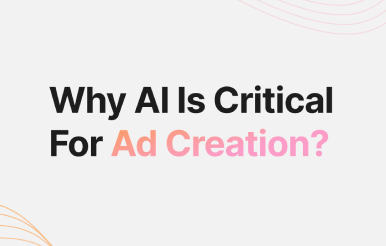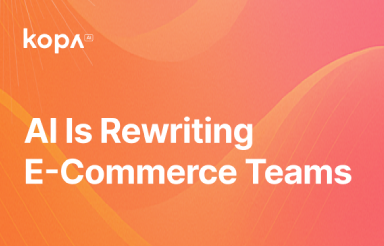How AI Agents Will Reshape E-Commerce Teams

AI isn’t replacing e-commerce teams — it’s rebuilding how they operate.
Right now, most brands are still using AI like a glorified assistant: write this, generate that, predict something.
But that’s changing fast.
We’re entering a new era — one where AI agents don’t just help operators, they become operators.
The Old Model: Humans + Tools
For years, digital commerce scaled by stacking tools and people.
You had:
- A media buyer for ads
- A retention marketer for Klaviyo
- A developer for landing pages
- An ops lead watching inventory
- And a growing list of tools between them
Every workflow was manual, repetitive, and siloed.
Each team made dozens of micro-decisions a day — checking dashboards, adjusting budgets, exporting CSVs, fixing pages.
The result?
Your team was constantly operating the machine instead of growing the business.
The Shift: From Operators → Orchestrators
The new model flips that on its head.
AI agents are beginning to take over the repetitive, rules-based parts of operations — things that once required constant human attention.
Think:
- Monitoring ad performance and auto-testing new creatives
- Forecasting stockouts and preparing restock POs
- Adjusting prices or spend based on margin data
- Generating new landing pages and product sections automatically
- Detecting slow-moving SKUs and launching flash campaigns
These aren’t “if-this-then-that” automations.
They’re decision-making loops that learn and act — just like a seasoned operator would.
Which means human teams are moving up the stack.
They’ll still decide what matters — but they won’t have to execute every step.
The New Roles Emerging
As AI agents start to run daily ops, new roles will form around them.
Here’s what the future team might look like:
1. AI Ops Manager
Oversees the network of AI agents running your store — setting goals, constraints, and approvals.
Think of them as the “COO” of your AI stack.
2. Strategic Creators
Marketers who focus on big ideas, not micro-optimizations.
They guide AI agents on angles, messaging, and storytelling — then let the system handle testing and deployment.
3. Data & Context Curators
Instead of crunching numbers, they train context — feeding AI agents clean, connected data from Shopify, Klaviyo, and Meta.
4. Experience Designers
People who shape how customers interact with an AI-powered brand: the flow, feel, and personalization of every touchpoint.
The point: humans won’t disappear — their leverage will multiply.
The Human–Machine Flywheel
Here’s how the future of e-commerce teams will work:
- Humans set goals — “We want to grow retention by 15% this quarter.”
- AI agents analyze everything from CAC to stock velocity.
- They act — launching tests, updating creatives, adjusting pricing.
- They learn — from performance, customer data, and external trends.
- Humans review & guide — approving major decisions or shifts.
The loop tightens over time.
Each action feeds back more data.
Each insight compounds the system’s intelligence.
That’s the compounding effect of agentic commerce.
The Reality Check
Most e-commerce teams are still in the prompting phase — using ChatGPT to write ad copy or DALL·E to render a product image.
But that’s like using a smartphone only for phone calls.
The next generation of AI — the one powering agentic systems like Kopa — is built to operate, not assist.
It connects every piece of your business and acts on it in real time.
The future e-commerce team won’t be bigger.
It’ll be smarter, faster, and infinitely scalable.

From the blog

Why AI Is Critical For Ad Creation?

The Multi-Tool Trap: Why E-Commerce Agents Need One Brain

How AI Agents Will Reshape E-Commerce Teams

The Age of Agentic Commerce: How AI Will Decide Which Products Get Seen


